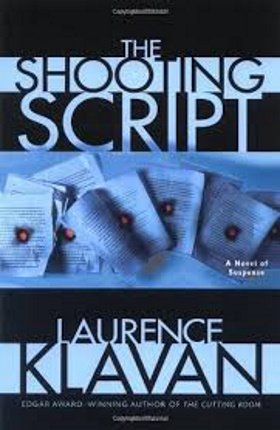RICHARD BURTON AND ROBERT MITCHUM TEAMED UP FOR A FILM THAT WAS abandoned in 1974. It was directed by Terence Young of Dr. No fame. Its title was what I felt I’d now hit: the Jackpot.
Abner tried to close the door on me, but I pushed it with full force. He offered little resistance. He just moved quickly beside Johnny/Stanley, who stood steps away in the tiny room.
“Nice try, guys,” I said.
It was a maid’s quarters, identical to the one I’d recently seen. The two men looked weirdly out of place in it, each wearing modern sweaters and slacks.
Johnny/Stanley was unchanged from how he’d last appeared in Amsterdam. Abner, though, had already suffered a reverse of the effects of his operation: He looked maybe fifty pounds heavier.
“Shut the door,” Stanley/Johnny said.
I turned and saw the guard, who had stopped in the doorway. He gave a befuddled wave to the mansion’s tenant, did as he was told, and disappeared.
When I turned back, the men were having predictable reactions. Stanley was smiling, smugly, and Abner was sweating, nervously. I directed my attention to the weaker of the two.
“Thanks for playing me for a fool, Abner,” I said.
“I don’t know what you’re talking about,” he replied.
“Come on, Milano,” Stanley scoffed. “You’re used to it. You’ve been a fool your whole life.”
“Maybe. But it’s better than being a psycho. Stan.”
Calling him a nut and by his real name unnerved Stanley. His little smile faded. Then, a second later, it reappeared, with less pleasure.
“I’m not the one chasing after a movie just so I can see it,” he said. “That’s really crazy.”
“Well, I’m sure you’ve got your own plans for Clown.”
“If I did, it would be called eBay.”
“Bastard.”
The word just jumped out of me. I knew Stanley’s motives were purely mercenary, but it hurt to hear it so baldly. I switched my sights back to Abner.
“He wasn’t trying to kill you to preserve the integrity of The Seven Ordeals of Quelman, was he, Abner? He didn’t even care. It was just an arrangement the two of you made after you … got together.”
Abner twitched a bit, guiltily. Then he tried to recapture his old obnoxious self. “Yeah, right. Tell me another.”
“You thought if you staged your own stalking, the suits at the studio would stop changing Quelman’s story. And you were right. Though, maybe your pal here went a little overboard on the knife wounds.”
Chased by the truth, Abner started to move backward, slowly. Soon he was literally hiding behind Stanley.
“I was just a little frosting on the cake,” I continued. “But you like frosting, don’t you, Abner? Because once I told you I was going after Clown, and you knew my every move, you had Stanley follow me. First to the flophouse—where he scared an old man to death and found nothing—then to the Hamptons and L.A. From there, in Amsterdam, he could handle me on his own.” I looked at Abner’s protector now. I used an old movie line. “Too bad you didn’t kill me when you had the chance.”
“Why,” Stanley laughed, “because you’re going to do it now?”
I wanted to, of course. But I’d never done anything close to that. Besides, Stanley would know the gun I carried was a fake. He had used it to shoot at Abner in the diner.
So I threw the useless weapon on the floor between us.
“Taylor might want that back,” I told my old pal. “He says hello, by the way.”
Abner blushed, deeply. I almost felt bad for him then. He had fallen for a chameleon who expressed all our worst impulses. The dark side is a powerful draw for a trivial man.
And for other people, too.
“Katie gives you her best,” I said, to Stanley.
Blushing wasn’t in Stanley’s palette. He only shrugged. “I haven’t seen her recently.”
“I have.”
This surprised him, though he did his best to hide it. If I knew how Graus had died, he sensed the stakes were getting higher. He moved to force things to a climax.
“Well, if you haven’t come to kill me,” he said, “why are you here? To turn me in?”
This had occurred to me, of course. Doing so would clear Katie. But it wasn’t my only reason for showing up.
“First,” I said, “I want the movie.”
Stanley grinned—very, very slowly. His features, so altered by surgery, had always been vague. Now, smiling more broadly than I’d ever seen him, he looked like what he was: a death’s head.
He turned, swiftly. Then he reached beneath the thin mattress on the maid’s old bed. When he faced me again, he held an object that the setting sun made sparkle like a bar of gold.
“Come and get it,” he said.
FOR A SECOND, I DIDN’T MOVE.

























